ISS from orbit, but what about into orbit?
Many media have already covered this point, but we will think very calmly now about the fact that it is officially announced that Russia is withdrawing from the International Space Station program in 2024.
The fact that the program of Russian participation in the ISS was coming to its natural end was obvious. When the improvement of the Russian sector of the ISS practically stopped, when they began to reduce the number of cosmonauts on board, because they trivially had nothing to do there, in general, the list of rather shameful successes and achievements of Roscosmos is as long as the solar system, but it makes no sense to enumerate it.
An epic became a clownery in near-Earth orbit with the filming of a film masterpiece from Channel One, which was very close in terms of script and very elegant in terms of costs. As I understand it, it was for the sake of filming that Nauka and Prichal were tortured into orbit, which, in fact, are absolutely not needed there today. But they made it possible to show that the Russian segment of the ISS is not a residential module with a couple of warehouses, but something more.
A very unpleasant aspect, because at one time, when there was a smell of divorce in space, I repeatedly said that it was on the basis of Nauka and Prichal that it would be possible to begin the formation of a new Russian orbital station, but in Roskosmos they outplayed everything in my own way. And the long-suffering "Nauka" was pushed into orbit in order, apparently, to be safely flooded in two years.
Thunderous applause, turning into a standing ovation. However, when compared with the treacherously flooded "Mir", which really could live and work, it's all so ... seeds.
It begs the understanding that all the billions swelled into the repair of Nauka, they have long been "mastered". And "Science" and "Prichal" are of no interest.
Of course, new modules will be developed for the new station, built from scratch and ... Yes, but the astronauts will sit on the ground for ten years. As with our deadlines, Borisov will probably need just that much for the profession of an astronaut to be in demand again in Russia.
By the way, about Borisov. The new General Director of Roskosmos, the former Deputy Prime Minister for the military-industrial complex and the rocket and space industry.
On July 26, at a meeting with the president, Borisov announced that after 2024 Russia would withdraw from the ISS project and start building the Russian orbital station ROSS. At this meeting, Borisov recalled that it was Russia that was the first in the world to send a man into space, and also "created" a huge potential for scientific and technical groundwork, which will need to be converted into specific services that are in demand by the Russian economy today.
Of course, it's great that Borisov knows so well history, and if, just as he eliminated Putin's gaps in this direction, he will eliminate the catastrophic situation in which the Russian cosmonautics finds itself, everything will be just fine.
Only two things are worrying. The first is that Russia sent the first man into space. Of course, many will now say that Russia is the legal successor of the USSR, but nevertheless, a somewhat different power brought man into space. The second is the receipt by the Russian economy of services from the space industry. This reads very ambiguously and doubtfully.
Perhaps Yuri Ivanovich did not speak very clearly, but this is excusable for a military man. Not a journalist, the demand is low. And here the point is not in words and formulations, but no matter how it looks, but the point is precisely in concrete deeds.
And what matters should be in the first place in importance in Roscosmos? That's right, manned flights of Russian cosmonauts to the Russian station in orbit and scientific space. That is, automatic stations and probes flying to other celestial bodies. Experiments and tests.
Borisov's task is not an easy one. This is not a Khokhloma launch vehicle painted in the style of its predecessor, it is somewhat different. The space path from Mir to ROSS via the ISS is very difficult and thorny.
This is back in 1993, when the death warrant for Mir was being signed, Russia still possessed all the might of Soviet space science and industry. And the Mir station was the first multi-module in orbit.
And now, when Americans and Europeans are well aware of all the intricacies of modular space stations, when in addition to the ISS there is both the Chinese Tiangong and the American Gateway being developed, ROSS no longer seems to be something so epoch-making. Orbital station. One of. More precisely, so far only a project.
Meanwhile, much of what was inherited from the USSR has been lost. What was lost was eagerly picked up by others. For example, China and India. The Chinese now have their own orbital station, painfully reminiscent of Salyut (which means, most likely, military), the Indians have hydrogen rocket engines, which, apparently, we will no longer have.
Yes, not only ours are to blame for such a broad-minded supply of everyone and everything. More precisely, mainly Ukrainians traded in space recipes, on whose territory, after the collapse of the USSR, many enterprises and research institutes remained.
Well, after the magnificence of Mir, it is worth seeing what the Russian successes on the ISS eventually degenerated into.
The entire ISS began in 1998 with the Zarya module, which is Russian and not Russian at the same time. Yes, it was built in Russia, according to our standards, but the Americans paid for it and they have all the rights to the Zarya. So if the pulling away in the corners of the ISS begins, then the Americans will take the Zarya.
The rest is the Zvezda habitation module, the Poisk small research module, the Rassvet docking and cargo module, and the Pirs docking module were put into orbit during the 20 years of the ISS existence. 117,9 cubic meters the volume of which is residential - 62 cubic meters.
Considering that the total living volume of the ISS is 388 cubic meters, this does not look impressive. Yes, "Science" and "Prichal" slightly improved the statistics, but we can only say one thing - it's too late.
It is obvious that for more than 20 years of the existence of the ISS project, Russia has been exclusively engaged in "cutting the loot" on the delivery of cargo and crews. Apparently, there was no desire to create new equipment for research and new modules. What for? Everything is going according to plan!
But we should not forget that even the power supply of the Russian segment could not be organized, and since there was not enough money for its NEM power module (and where would they come from if half the world was rolled to the ISS and back), then the Russian segment was fed by American electricity.
Well, it’s good that they didn’t install meters and didn’t take money.
In general, if you look like that, then there is nothing to regret. Given the age and semantic load, that is, usefulness.
The detachment will not notice the loss of a fighter?
Quite. Since Roskosmos has lost its monopoly on the delivery of people and cargo into orbit (it would be interesting to know where the money for transportation went), the Americans and Europeans will definitely cope on their own if they decide to operate the station without us. They now have both trucks and passenger ships for this.
There is, however, an unpleasant moment: the correction of the ISS orbit. Now the engines of Zvezda and Progress cargo ships arriving to the ISS are engaged in this operation, but how it will look like in the future is a question. The Americans believe that they will be able to correct the station's orbit using the engines of the Cygnus cargo ship, but there will also be difficulties with this. The location of the docking nodes is such that in order to correct from the standard docking points, you will first have to deploy the entire station (and this is an energy-consuming maneuver), and then return it back. And the return procedure is also impossible without the Russian segment.
In general, the situation is stalemate. In order for 440 tons not to fall from orbit to some settlement, NASA and Roscosmos are forced to cooperate. But the political situation today is such that it is beneficial for everyone to leave the station (or divide it up) and start each with their own new projects.
Everything was going to that, but, perhaps, international cooperation in space lasted longer than others. But in fact, after February 24 of this year, the end came to him. And now Russia decides to go its own way ...
However, in the US, they came to this decision much earlier, deciding to gradually entrust low Earth orbit to private companies and starting to concentrate on the lunar program.
Through the barns and through the barrels
So, what do we have besides naked enthusiasm and promises to build ROSS? Actually, there is something. It has already been announced that the heart of the new ROSS station will be the NEM, a scientific and energy module that Roscosmos was supposed to dock to the ISS in 2025. This, for obvious reasons, will not happen.
NEM is not small. Its living volume is greater than that of "Science" or "Zvezda", 92 cubic meters. The energy potential of 50 kW is also quite. It will take several years to finalize the module for people living on it, that is, places for astronauts to rest, a sanitary zone and everything else. What was on the "Star".
It was announced that the deployment of ROSS is planned to be carried out in two stages. At the first stage, which will last from 2025 to 2030, it is planned to launch two ROSS modules: the modified NEM and the Prichal node, the base and the gateway. From 2030 to 2035, the plans are to add a few more modules, and here I would like to say: in the event that there is something to add.
Of course, it turns out very modestly and poorly, just like the Chinese.
But there is no time for fat, you can forget about the luxury of the premises and equipment of the ISS. On the other hand, what's the point of looking at how the Europeans and Japanese work on their equipment, to which the Russians have no access?
So the exit of Russia from the ISS is fully justified. If participation in the project does not promise anything, and in our time of continuous sanctions, even the most optimistic ones are unlikely to be able to see the prospects. So the “divorce” is quite justified, and the ISS will simply go down (to the bottom) in history, as, probably, the last project where Russia and the United States cooperated as friends.
Here it remains only to sympathize with Yuri Ivanovich Borisov, who found himself in a very difficult situation. Despite all the injections of money, according to articles in the media, only one term is applicable to Roscosmos - "collapse". And the main fault here lies with Rogozin and those who entrusted him with the management of such a corporation. Well, a journalist cannot turn out to be a decent manager in an instant, it just doesn't happen that way. Rogozin played with words very well and made loud gestures. Alas, this does not fly into orbit, even with a trampoline.
In general, leaving the ISS and international joint projects can play very interesting. On the one hand, to urge Roskosmos and research institutes to develop and create equipment, ships, systems that will be implemented in Russian space. Indeed, in fact, apart from the old Soyuz, designed by the great Korolev, and no less old Progress, we have nothing.
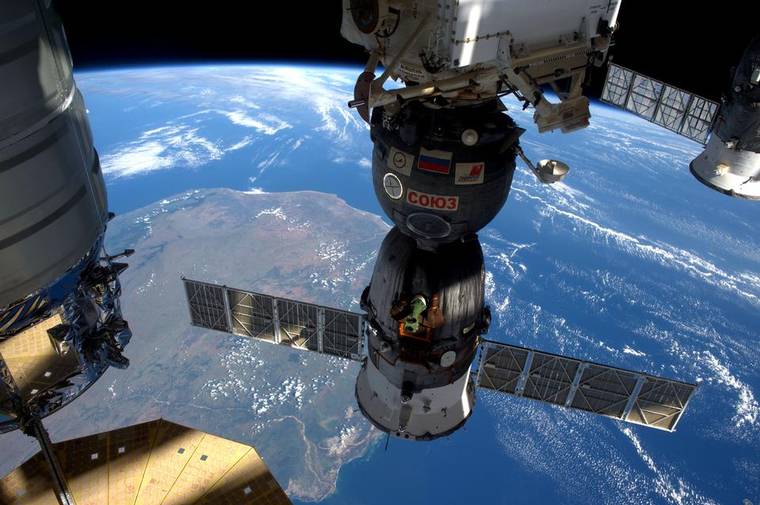
The great space power, which makes films about the "Time of the First", lives exclusively on what was created at that time. Yes, the Soyuz are now running on integrated circuits, but they are exactly the same Soyuz as the one that first took off from Earth in 1967.
We forgot about space automatic interplanetary stations for a long time and for a long time. Everyone could do it in the USSR and absolutely failed in Russia. Alas.
Russia's departure to the "single flight" can somewhat improve the situation. Unless, of course, in the structures around and around Roskosmos they don’t steal the way they stole during the construction of the Vostochny cosmodrome. Then progress is quite possible, on the remnants of the Soviet backlog, on the remnants of personnel.
Or everything just dies. This is also an option. And they will tell us that these swarming in orbit are not so important, we will prepare for jumps into Deep Space, which will certainly bring Russia the status of a great space power, and so on. And this is quite a possible option, since it is no secret to anyone today how deep we have fallen into the maelstrom of "import substitution".
In general, time will tell. There is a choice, but the choice is very difficult: either gritting your teeth and rolling up your sleeves, restore the Russian space industry by training new personnel, giving them decent salaries, or, as under Rogozin, place very effective managers in key positions who will finally ruin the Russian space.
Well, yes, properly submit all this to the electorate. And then watch the films “The Time of the First” and the like, quietly sighing for the times when we really were the first in many ways.
Time will tell. And Mr. Borisov has a chance to justify the trust and prove that the Stars of Heroes are not given to anyone.
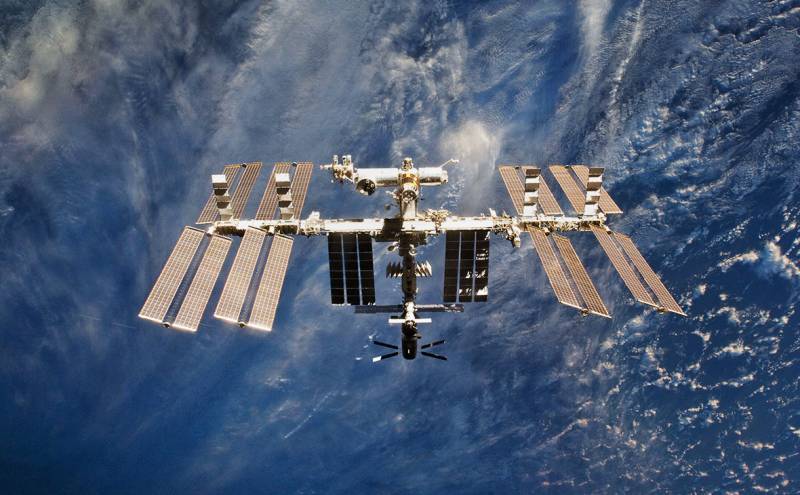
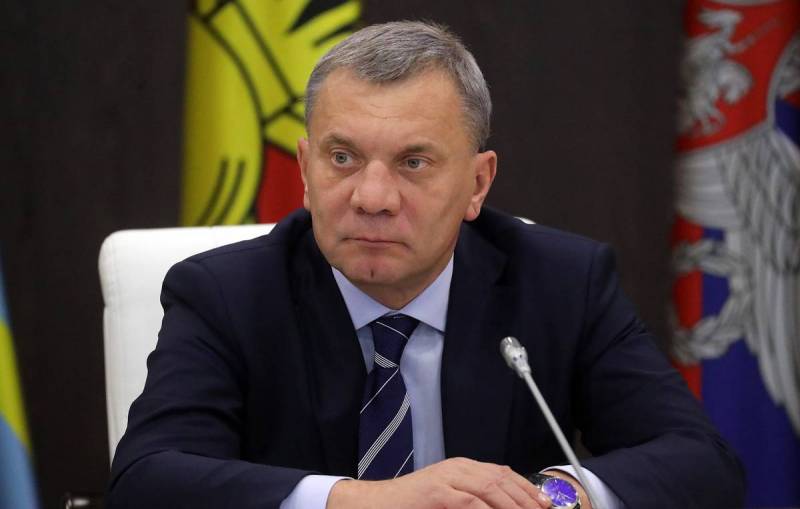
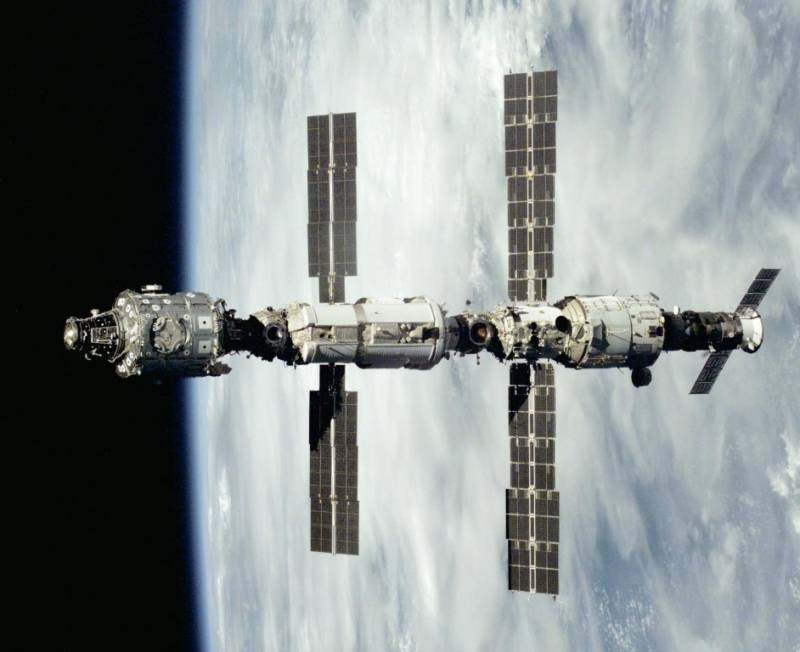
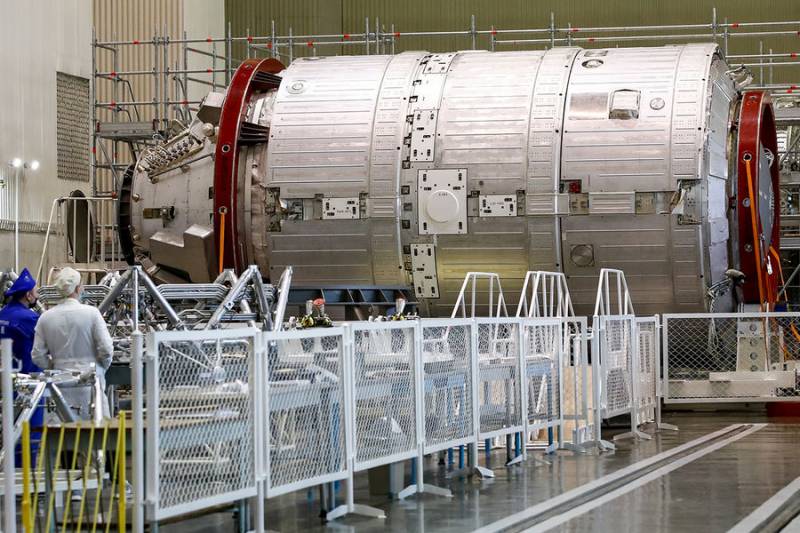
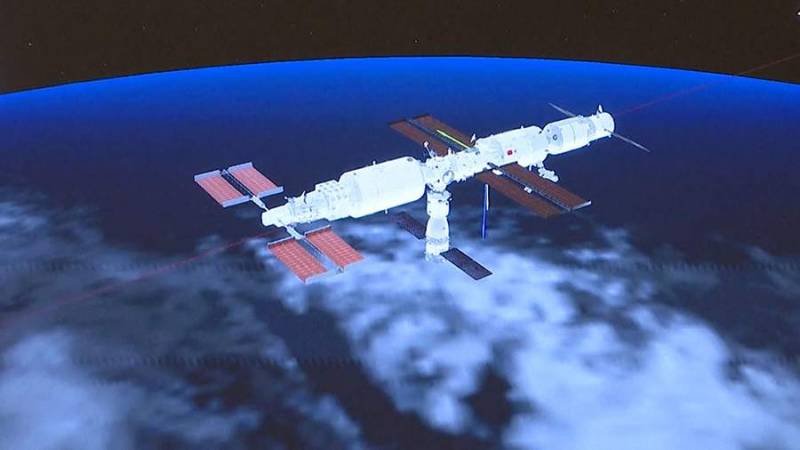
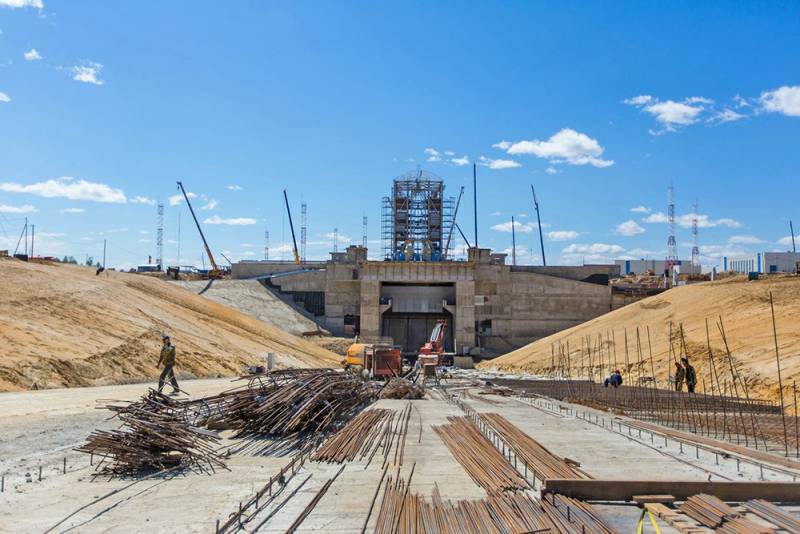
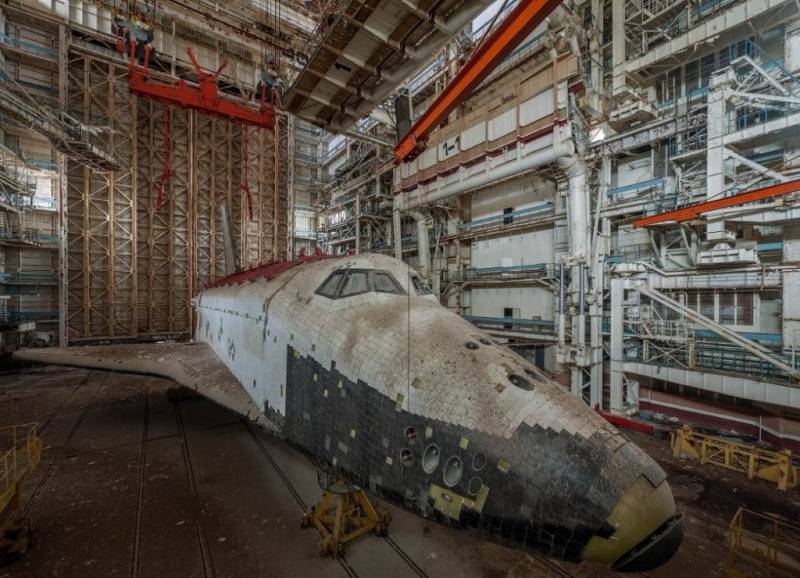
Information